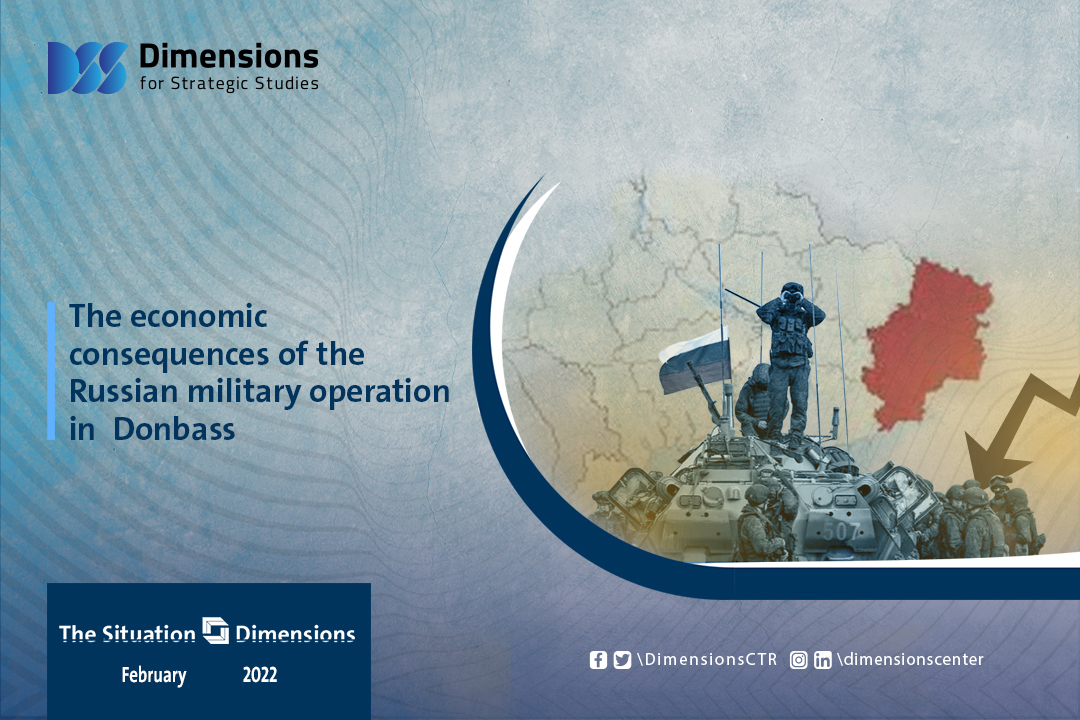
The economic consequences of the Russian military operation in the Donbass region
2022-02-241891 view
Following the global tensions that were associated with the start of the Russian military operation to seize the Donbass region, and in light of the efficiency of the global markets, which were directly affected by the flow of information; consequences were clearly seen in many aspects. All of the above were at a time when it seemed that the military operation came in a context related to the effects of the global economic crisis caused by the outbreak of the Covid-19 epidemic and its subsequent variants, so that the economic effects as reflections of this process are mainly:
Oil prices:
It could be immediately noticed that oil prices that were struggling below $100 a barrel, headed higher. This makes possible that the rise will continue in a manner related to the duration and dimensions of the operation, as well as the reactions of international bodies. Accordingly, imposing sanctions on Russian oil companies will contribute significantly to reducing supply, and thus a rise in prices. Another factor might be added which is the lengthening of the military operation; and that will cause the markets to enter a state of uncertainty, which in itself is an incentive for increased prices.
Prices of main commodities:
Russia and Ukraine are major exporters of basic grains such as wheat, corn and barley, in addition to large quantities of meat and tobacco. The current tension will certainly affect the ability of countries to import the required quantities from these two exporters. Consequently, the prices of the main commodities, which are already rising, will go up during the operation period.
Gas supplies to Europe:
European countries depend on Russian gas for a third of their consumption. Despite the fact that winter is coming to an end, the consumed quantities remain relatively high. Germany, the Netherlands and Italy are the most affected countries by the weak or interruption of supplies. Turkey comes next. It is expected that Western countries will make a decision to partly or completely dispose of the quantities purchased directly from Russia and find other alternatives from the United States of America, Egypt, Algeria and Qatar. These quantities, however, may affect the ability of alternative countries to Russian gas to supply and abide by their medium-term contracts, making the markets enter into a state of uncertainty, which consequently raises the prices in any future contracts.
Economic sanctions:
Western countries vowed to impose unprecedented sanctions in the event of a military operation took place. The sanctions will target the Russian banking system, the military, and major oil institutions, as well as Russian individuals and institutions. These sanctions will affect the dynamics of dealing with Russian oil companies and their investments in the world and joint investments with them by various countries. Moreover, investments in Russian debt will be targeted with such sanctions, as the Russian foreign debt amounts to about 60 billion US dollars in European markets, in addition to debts owed by Russian giant Gazprom with about $2 billion.
Immigration issues:
There is no doubt that wars and military operations always push people to flee war zones. The issue of immigration and seeking asylum is one of the matters that will have its effects starting with the first hours of the military operation, as thousands of families are expected to flee out of Ukraine to European countries as the first destination.
Thus, we find that the military action , even if it takes the form of a quick and limited military operation , its effects would not be confined to national borders or to the territories of the warring parties, they will rather expand to include vital markets and major commodities, including Europe, the Middle East and some Asian countries as well





